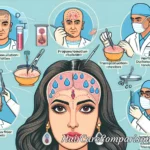Undergoing an organ transplant is a monumental event in a person’s life, encompassing not only the physical but also emotional and psychological aspects. While the primary focus post-transplant is often on physical recovery and the prevention of organ rejection, another important, yet less talked about aspect, is the impact on sexual health and activity. Many individuals find themselves avoiding sexual activity post-transplant for various reasons, which we will explore in this article.
Understanding the Physical Changes
After a transplant, the body undergoes significant changes, including the effects of major surgery, the introduction of new medications, and the adjustment to a new organ. These changes can influence sexual function and desire directly and indirectly, leading to a temporary or prolonged period of sexual activity avoidance.
Medication Side Effects
Post-transplant medications, essential for preventing organ rejection, can have side effects that impact sexual health. For instance, some immunosuppressive drugs can reduce libido or cause physical discomfort that makes sexual activity less appealing. Understanding these effects on sexual activity post-transplant is crucial for both patients and their partners.
The Psychological Impact
Body Image Concerns
Transplant surgery often leaves scars or changes in body shape that can affect a person’s self-esteem and body image. This self-consciousness can lead to a reluctance to engage in sexual activities, fearing judgment or feeling less attractive to their partner.
Fear of Organ Rejection or Damage
Another significant psychological barrier is the fear that sexual activity might somehow harm the new organ or lead to rejection. This fear, though often unfounded, can be a potent inhibitor of sexual desire and activity.
Communication Challenges
Talking About Sexual Health
Discussing sexual health and concerns can be challenging for many individuals and couples. Post-transplant, this conversation becomes even more crucial yet harder to initiate. The lack of open dialogue about sexual health and needs can lead to misunderstandings and avoidance.
Partner Concerns and Support
Partners of transplant recipients also face their own set of fears and concerns, primarily revolving around causing harm or discomfort. Their support is vital, yet without proper communication, sexual activity can become a source of stress rather than intimacy.
Seeking Professional Help
Many transplant recipients and their partners might not be aware that professional help is available for dealing with sexual health post-transplant. Consulting healthcare providers or sex therapists can provide strategies and reassurance for resuming sexual activity safely and enjoyably.
Lifestyle Adjustments Post-Transplant
Post-transplant life requires several adjustments, including dietary changes, physical activity restrictions, and avoidance of certain habits like smoking and alcohol consumption. These changes, while aimed at preserving the health of the new organ, can also indirectly affect sexual health and activity.
The Role of Time in Recovery

Recovery after a transplant is a gradual process. Initially, the focus is on healing and adjusting to the new organ and medications. Over time, as the body recovers and individuals adapt to their post-transplant life, sexual health and activity often resume naturally. Patience and understanding from both the transplant recipient and their partner are crucial during this period.
Importance of Professional Guidance
Professional guidance from healthcare providers is indispensable in navigating the complexities of sexual health post-transplant. They can offer tailored advice, including when it is safe to resume sexual activity and how to manage any physical or psychological barriers.
Educating Yourself and Your Partner
Education plays a pivotal role in overcoming sexual activity avoidance post-transplant. Learning about the potential impacts of surgery, medications, and lifestyle adjustments on sexual health enables individuals and couples to address these challenges more effectively.
Building a Support System
Having a strong support system, including healthcare providers, counselors, and peer support groups, can provide the encouragement and advice needed to navigate sexual health concerns post-transplant. Sharing experiences and strategies with others in similar situations can be particularly reassuring and helpful.
Conclusion
Avoiding sexual activity post-transplant is a common concern among transplant recipients, rooted in physical, psychological, and communication challenges. By understanding these reasons, seeking professional guidance, and building a strong support system, individuals and their partners can navigate these challenges successfully. Emphasizing open communication, education, and patience will pave the way for a healthy resumption of sexual activity, enhancing overall quality of life post-transplant. For more insights, consider exploring the topic of alcohol consumption safety post-transplant, which also plays a significant role in post-transplant recovery and lifestyle adjustments.






